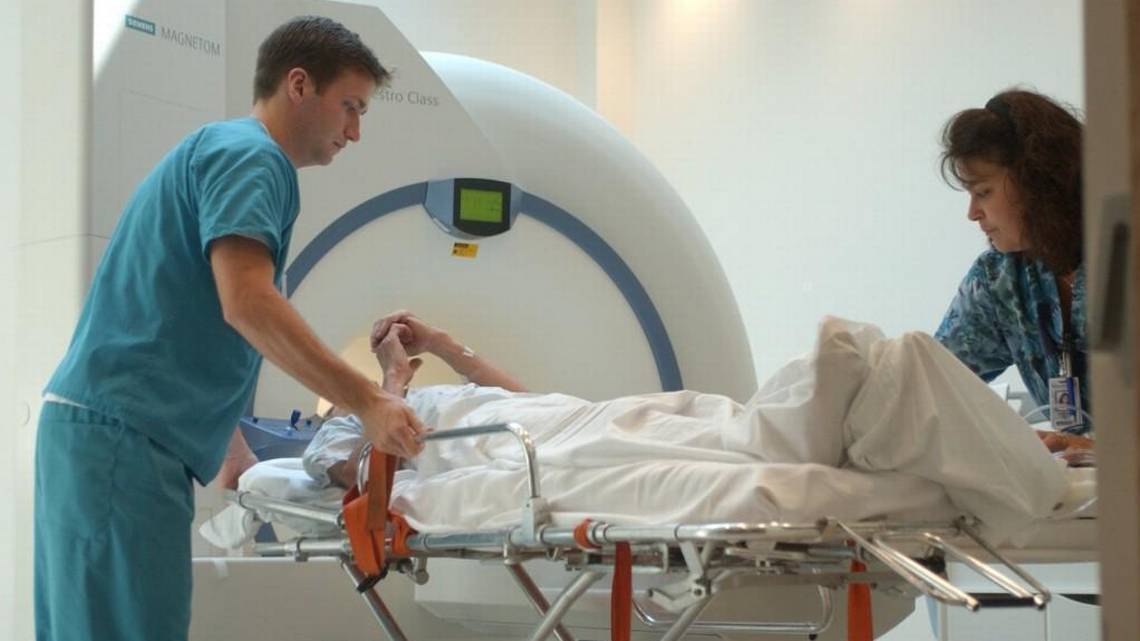
Usually it costs money to get an MRI. But sometimes, in order to save money, insurance companies pay patients to seek less expensive medical care providers. Here is an excellent news report on the topic from The News & Observer:
North Carolina’s largest health insurer is proposing a solution to control runaway health care costs: paying people to use cheaper doctors and procedures.
Blue Cross and Blue Shield will offer customers between $25 and $500 per medical procedure for more than 100 procedures. The amount of the rebate depends on the procedure’s complexity and the cost savings of the cheaper option.
A Blue Cross spokesman pointed out that picking a cheaper option is more valuable than just the cash rebate.
“There is also the big cost-saving potential where you can shop, find a high-quality provider, and really reduce your out-of-pocket costs,” said Blue Cross spokesman Austin Vevurka.
Insurers have for years sought to influence patient decisions through co-payments and high deductibles as a shared financial responsibility for medical costs. Blue Cross is taking the concept further by offering to share savings with the customer as a thank-you for reducing costs. In the past, this approach has been tried by financially rewarding doctors and hospitals for achieving cost savings.
Some health care experts are excited at the prospect of pulling back the veil on health care costs, saying that pricing transparency is long overdue. But others warn that using money to influence private medical decisions can be harmful, noting that not all doctors are equal.
“I would caution patients to be careful,” said Raleigh orthopedist Dr. Bradley Vaughn who operates at UNC Rex Hospital. “If someone saves $500 from a hip or knee replacement and suffers a serious complication, that $500 will be a drop in the bucket compared to all the misery they’ll experience.”
Blue Cross is offering the SmartShopper only to companies that pay for their employees health insurance and health care. In these instances, Blue Cross only administers the plan. There are nearly 400 such employers in North Carolina administered by Blue Cross and their plans cover nearly 1 million employees.
So far, 10 of those companies have opted to offer SmartShopper to their employees. Blue Cross, which covers 3.8 million people in the state, is not offering SmartShopper to patients on individual plans and other employer-sponsored policies at this time.
The State Health Plan, the largest Blue Cross customer in the state, has opted not to buy the SmartShopper service for the 727,000 state employees, teachers, retirees and dependents it insures. State Health Plan spokesman Frank Lester said the service “did not add any value.”
Nationwide, SmartShopper has generated more than $56 million in savings for employers and has paid out $6.7 million in cash incentives to employees in the United States in the past four years, according to Vitals, the New Jersey company that launched the technology in 2015. It’s used by 230 employers and more the 20 health plans with 2.5 million members around the country, company spokeswoman Rosie Mattio said.Is it ethical?
Several medical ethicists praised SmartShopper as a technology that empowers the public on health care costs that have for far too long remained hidden in a black box.
“I like the idea of paying people to pay attention to what they’re doing because of the principle of responsibility — pay attention to the cost of your choices,” said Lance Stell, a retired philosophy professor at Davidson College who taught medical ethics to residents at Carolinas Medical Center. “We want patients to be empowered.”
And Dr. Peter Ubel, a physician and health sector management professor at Duke University’s Fuqua School of Business, made a different ethical point. “When a gastro-enterologist charges way more than another one down the street, nobody was raising ethical concerns about that, and yet you may be responsible for 20 percent of the cost.”
To read the rest of this article, please visit The News & Observer.
